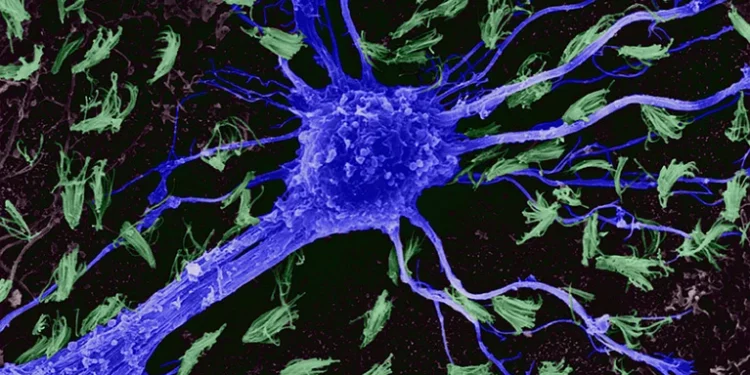New Delhi: Scientists forming an international collaboration have mapped the genetic, cellular, and structural makeup of the human brain and the nonhuman primate brain.
Along with new knowledge about the brain cells, they share new insights about our nervous systems’ cellular makeup across many regions of the brain and what makes the human brain distinctive.
Hundreds of scientists from around the world worked together to complete a range of studies to demonstrate how a suite of scalable techniques can be used to study the detailed organisation of the human brain at unprecedented resolution.
The detailed mapping of the brain allows for a deeper knowledge of its function and dysfunction at the cellular level, helping pave the way for a new generation of precision therapeutics for people with mental disorders and other illnesses of the brain, the researchers said.
Their findings appear in more than 20 papers published across the journals Science, Science Advances and Science Translational Medicine.
In one of the studies, scientists at the Karolinska Institute, Sweden, and the Allen Institute for Brain Science, US, studied the genes switched on in individual brain cells, a technique known as single-cell transcriptomics, revealing that we have more than 3,000 different kinds of brain cells.
Other questions that the studies aimed to answer were – How different are individual people’s brains at the cellular level? How different are our brains from those of our closest ape relatives? What are the properties of the different kinds of brain cells? How do these cells emerge and mature in development?
Another study explored the anatomy and physiology of neurons in the outermost layer of the neocortex – part of the brain involved in higher-order functions such as cognition, motor commands, and language.
The study revealed differences between the human brain and the mouse brain, suggesting this region may be an evolutionary hotspot, with changes in humans reflecting the higher demands of regulating humans’ more complex brain circuits.
Comparing brain cell types of humans and of our closest ape relatives, chimpanzees and gorillas, some studies reveal that while we share the same basic brain cell type architecture with our close evolutionary cousins, many genes involved in connections between neurons and the formation of circuits in the brain are different between humans and other primates.
“That creates a plausible explanation for how you could increase cognitive capability through evolution, by wiring up circuits of the same kinds of cells or changing the gain in the system in slightly different ways,” said Ed Lein, Senior Investigator at the Allen Institute, who led several of the newly published studies.
The relatively small changes in gene expression in the human lineage led to changes in neuronal wiring and synaptic function that likely allowed for greater brain plasticity in humans, supporting the human brain’s ability to adapt, learn, and change, the scientists found.
Another study provided new insights into brain development and function across the lifespan. The study found a link between the properties of cells in the adult brain and the properties of those cells during development, by exploring how cells vary in different brain regions in marmosets.
The link suggests that developmental programming is embedded in cells when they are formed and maintained into adulthood and that some observable cellular properties in an adult may have their origins very early in life, the researchers said.
In another study, led by the University of California San Diego, US, the researchers analysed more than 1.1 million brain cells across 42 distinct brain regions from three human brains.
They identified 107 different subtypes of brain cells and were able to correlate aspects of their molecular biology to a wide range of neuropsychiatric illnesses, including schizophrenia, bipolar disorder, Alzheimer’s disease and major depression.
The researchers then used this data to create machine learning models to predict how certain sequence variations in the DNA can influence gene regulation and contribute to disease.
“Mapping the brain’s cellular landscape is a critical step toward understanding how this vital organ works in health and disease,” said Joshua A. Gordon, director of the National Institute of Mental Health in the US.
“These new detailed cell atlases of the human brain and the nonhuman primate brain offer a foundation for designing new therapies that can target the specific brain cells and circuits involved in brain disorders,” said Gordon.
All the studies form a part of the BRAIN Initiative Cell Census Network (BICCN) collection and were funded by the US National Institutes of Health’s Brain Research Through Advancing Innovative Neurotechnologies (BRAIN) Initiative.
PTI






































